


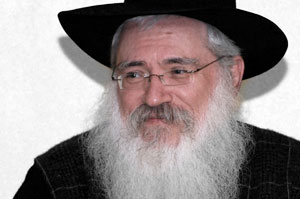
 44:03
44:03
University students Madeline and Benjamin bring all their biggest questions on Judaism to the table, ranging from topics like Messiah and sin to feminism and family. Rabbi Manis Friedman, the most popular Rabbi on YouTube, offers answers and insights you didn't see coming. .
Rabbi Manis Friedman (248)
 54:07
54:07
Is Moshiach coming or do we have to bring him? Do we play an active role in bringing about the Messianic era, and if so, where do we begin? This lecture was delivered at the 16th annual National Jewish Retreat. For more information and to register for the next retreat, visit: Jretreat.com.
Rabbi Manis Friedman (248)
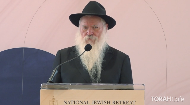 39:54
39:54
This lecture was delivered at the 16th annual National Jewish Retreat. For more information and to register for the next retreat, visit: Jretreat.com.
Rabbi Manis Friedman (248)
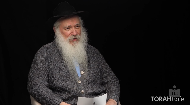 5:03
5:03
Mr. David Yarus (3)
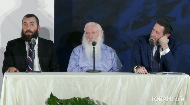 2:51
2:51
What does Judaism say about becoming a millionaire or a billionaire? For more "Crossfire" questions, go to: torahcafe.com/crossfire.
Series: Individual Crossfire questions
Rabbi Manis Friedman (248)
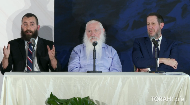 3:54
3:54
What positive lesson can we learn from the recent covid pandemic? For more "Crossfire" questions, go to: torahcafe.com/crossfire.
Series: Individual Crossfire questions
Rabbi Manis Friedman (248)
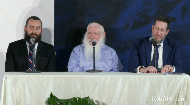 3:32
3:32
Why should the child or divorced parents get married? For more "Crossfire" questions, go to: torahcafe.com/crossfire.
Series: Individual Crossfire questions
Rabbi Manis Friedman (248)
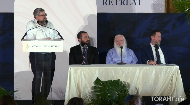 1:28
1:28
How can one know what their full potential is? For more "Crossfire" questions, go to: torahcafe.com/crossfire.
Series: Individual Crossfire questions
Rabbi Manis Friedman (248)
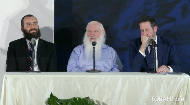 2:23
2:23
Why can't I marry a Non-Jew who will then convert to Judaism? For more "Crossfire" questions, go to: torahcafe.com/crossfire.
Series: Individual Crossfire questions
Rabbi Manis Friedman (248)
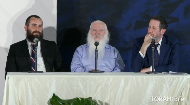 2:21
2:21
Will G-d ever allow me to take a small vacation from all my religious obligations? Sometimes things are too overwhelming for me. For more "Crossfire" questions, go to: torahcafe.com/crossfire.
Series: Individual Crossfire questions
Rabbi Manis Friedman (248)
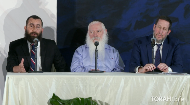 2:37
2:37
Is Judaism too focused on physical rituals at the expense of mindfulness and the inner experience? Why does a spiritual G-d care about physical deeds? For more "Crossfire" questions, go to: torahcafe.com/crossfire.
Series: Individual Crossfire questions
Rabbi Manis Friedman (248)
 2:21
2:21
When it comes to charity, we are allowed and even supposed to test G-d to see if he’ll reward us with riches for fulfilling this Mitzvah. So does every Jew who gives charity become rich? For more "Crossfire" questions, go to: torahcafe.com/crossfire.
Series: Individual Crossfire questions
Rabbi Manis Friedman (248)
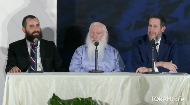 1:05
1:05
What is so special about being called up for an Aliya? For more "Crossfire" questions, go to: torahcafe.com/crossfire.
Series: Individual Crossfire questions
Rabbi Manis Friedman (248)
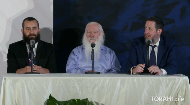 3:11
3:11
As G-d is not time-bound and thus is in the future just as He is in the present, from His perspective - all my future choices have already been made. As such, can I really do anything other than what is destined for me? For more "Crossfire" questions, go to: torahcafe.com/crossfire.
Series: Individual Crossfire questions
Rabbi Manis Friedman (248)
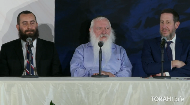 1:32
1:32
The Torah requires us to love every single Jew, but there’s a guy I know with a terrible personality and massive character defects that I just can’t stand. What am I supposed to do? For more "Crossfire" questions, go to: torahcafe.com/crossfire.
Series: Individual Crossfire questions
Rabbi Manis Friedman (248)
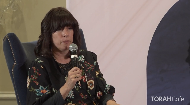 52:36
52:36
In the last few years, many of our communities have splintered, not able to provide us with the support we need. Learn about the impact of connection and support on wellness, as well as how we can be there for one another. This session took place at the 16th annual National Jewish Retreat. For more information and to register for the next retreat, visit: Jretreat.com.
Dr. David Rosmarin (5)
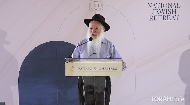 53:27
53:27
Is all this time we spend thinking about our needs driving us to depression? Is there another way to look at life? Should we instead ask, “what are we needed for?” This lecture was delivered at the 16th annual National Jewish Retreat. For more information and to register for the next retreat, visit: Jretreat.com.
Rabbi Manis Friedman (248)
 36:25
36:25
We’re back with the popular duo David Yarus, founder of JSwipe, and Rabbi Manis Friedman, YouTube’s most popular Rabbi, and this time, they’re talking about why relationships derail
Mr. David Yarus (3)
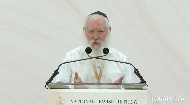 46:07
46:07
Explore the saga of the soul, from life in this world to life in the next. Find out; what’s heaven really like? This session took place at the 16th annual National Jewish Retreat. For more information and to register for the next retreat, visit: Jretreat.com.
Rabbi Manis Friedman (248)
 19:25
19:25
David Yarus, founder of the #1 Jewish dating app - JSwipe, and Rabbi Manis Friedman, YouTube’s most popular Rabbi, sit down for an unapologetic dialogue on marriage and dating. From big questions like ‘why marry’ to millennials’ pursuit of romantic perfection, join this dynamic pair as they explore meaningful relationships in today’s swipe culture. .
Mr. David Yarus (3)
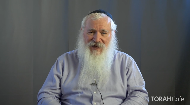 6:53
6:53
What is the Jewish concept of repentance?.
Rabbi Manis Friedman (248)
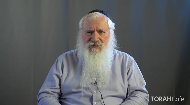 5:48
5:48
What does it mean that G-d is always watching us and orchetrating all that goes on?.
Rabbi Manis Friedman (248)
 4:41
4:41
What is the significance of having "Kavanah" (intent) when performing a Mitzvah?.
Rabbi Manis Friedman (248)
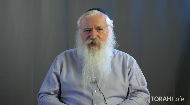 2:54
2:54
What is unique about the Jewish version of spirituality?.
Rabbi Manis Friedman (248)
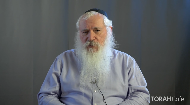 2:37
2:37
What is unique about the Jewish version of meditation?.
Rabbi Manis Friedman (248)
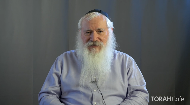 7:18
7:18
G-d is everywhere. What difference does that make to me?.
Rabbi Manis Friedman (248)
 48:33
48:33
If G-d is so almighty, how are we expected to get to know Him? In this enlightening talk, prepare to get to know the Creator as you've never seen Him before. This lecture was delivered at the 15th annual National Jewish Retreat. For more information and to register for the next retreat, visit: Jretreat.com.
Rabbi Manis Friedman (248)
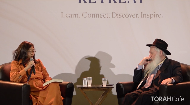 48:59
48:59
Rabbi Manis Friedman, and Rivka Goldstein, co-authors of a new release, Creating a Life That Matters will address some of the fundamental questions we all ask. From relationships to death to purpose and the goal of it all, join us for a book launch discussion with the authors. This session took place at the 15th annual National Jewish Retreat
Mrs. Rivka Goldstein (1)
 50:55
50:55
Modern science has uncovered many mysteries regarding life, but it has little to say about death. Join Rabbi Manis Friedman for an excursion to a place from which we can see what awaits us all. The good news is that we will travel roundtrip. This lecture was delivered at the 15th annual National Jewish Retreat
Rabbi Manis Friedman (248)
 3:02
3:02
For more "Crossfire" questions, go to: torahcafe.com/crossfire.
Series: Individual Crossfire questions
Rabbi Manis Friedman (248)
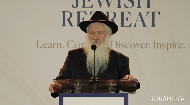 52:47
52:47
The number of people who consider themselves atheists has doubled in the last ten years. Why is it so hard for people to see a G-d in the world? And how can we be so sure we always see Him? This lecture was delivered at the 15th annual National Jewish Retreat. For more information and to register for the next retreat, visit: Jretreat.com.
Rabbi Manis Friedman (248)
 4:23
4:23
For more "Crossfire" questions, go to: torahcafe.com/crossfire.
Series: Individual Crossfire questions
Rabbi Manis Friedman (248)
 2:48
2:48
For more "Crossfire" questions, go to: torahcafe.com/crossfire.
Series: Individual Crossfire questions
Rabbi Manis Friedman (248)
 6:00
6:00
For more "Crossfire" questions, go to: torahcafe.com/crossfire.
Series: Individual Crossfire questions
Rabbi Manis Friedman (248)
 3:56
3:56
For more "Crossfire" questions, go to: torahcafe.com/crossfire.
Series: Individual Crossfire questions
Rabbi Manis Friedman (248)
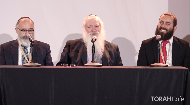 3:33
3:33
For more "Crossfire" questions, go to: torahcafe.com/crossfire.
Series: Individual Crossfire questions
Rabbi Manis Friedman (248)
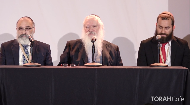 1:24
1:24
Why should one celebrate their Hebrew birthday over their secular one? For more "Crossfire" questions, go to: torahcafe.com/crossfire.
Series: Individual Crossfire questions
Rabbi Manis Friedman (248)
 4:50
4:50
Series: Moment of Wisdom
Rabbi Manis Friedman (248)
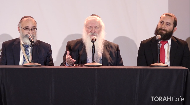 4:56
4:56
For more "Crossfire" questions, go to: torahcafe.com/crossfire.
Series: Individual Crossfire questions
Rabbi Manis Friedman (248)
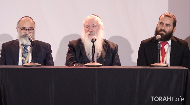 3:24
3:24
As G-d offered the Torah to multiple nations before the Jews, if one of them would have accepted, would the exodus then become a mistake in retrospect? And would the Jews’ status as the “Chosen Nation” be revoked? For more "Crossfire" questions, go to: torahcafe.com/crossfire.
Series: Individual Crossfire questions
Rabbi Manis Friedman (248)
 3:23
3:23
Series: Moment of Wisdom
Rabbi Manis Friedman (248)
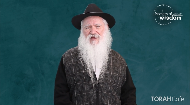 6:05
6:05
Series: Moment of Wisdom
Rabbi Manis Friedman (248)
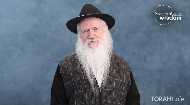 8:10
8:10
When given a blessing for children, do you start making conditions?.
Series: Moment of Wisdom
Rabbi Manis Friedman (248)
 4:52
4:52
Rabbi Manis Friedman (248)
 2:07
2:07
Rabbi Manis Friedman (248)
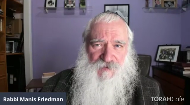 1:12:47
1:12:47
This video is part of a series of live streams by the Rohr Jewish Learning Institute (JLI) to provide quality lectures during the worldwide COVID-19 lockdowns. Click here to see more.
Series: Live Social Media Streams
Rabbi Manis Friedman (248)
 46:17
46:17
This video is part of a series of live streams by the Rohr Jewish Learning Institute (JLI) to provide quality lectures during the worldwide COVID-19 lockdowns. Click here to see more.
Series: Live Social Media Streams
Rabbi Manis Friedman (248)
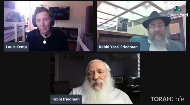 1:08:07
1:08:07
This video is part of a series of live streams by the Rohr Jewish Learning Institute (JLI) to provide quality lectures during the worldwide COVID-19 lockdowns. Click here to see more.
Series: Live Social Media Streams
Louis Kemp (1)
 1:02:59
1:02:59
This video is part of a series of live streams by the Rohr Jewish Learning Institute (JLI) to provide quality lectures during the worldwide COVID-19 lockdowns. Click here to see more.
Series: Live Social Media Streams
Rabbi Manis Friedman (248)
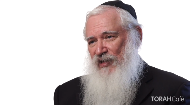 6:14
6:14
Rabbi Manis Friedman (248)
 6:24
6:24
Rabbi Manis Friedman (248)
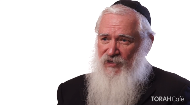 13:34
13:34
Rabbi Manis Friedman (248)
 13:26
13:26
Rabbi Manis Friedman (248)
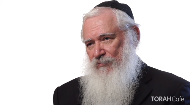 8:21
8:21
Rabbi Manis Friedman (248)
 2:37
2:37
Rabbi Manis Friedman (248)
 46:23
46:23
We Jews are an ancient people. But who are we? Join one of the most innovative Jewish minds as he uncovers the deep meaning of being Jewish. This lecture was delivered at the 14th annual National Jewish Retreat. For more information and to register for the next retreat, visit: Jretreat.com.
Rabbi Manis Friedman (248)
 51:29
51:29
It is easy to become awed by the majestic scale and power of Hashem. In a brilliantly counter-intuitive presentation, Rabbi Friedman paints an emotional portrait of the Divine and our relationship with it. Could it be that G-d needs our love? This lecture was delivered at the 14th annual National Jewish Retreat
Rabbi Manis Friedman (248)
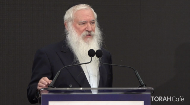 52:45
52:45
Are you lonely? This lecture was delivered at the 14th annual National Jewish Retreat. For more information and to register for the next retreat, visit: Jretreat.com.
Rabbi Manis Friedman (248)
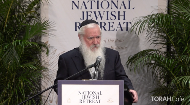 1:04:21
1:04:21
No text is as overwhelmingly complex as Torah. In it is the entirely of human existence: our origin, our ethics, our wisdom, and our ultimate destiny. Join Rabbi Friedman as he sketches the architecture of existence itself. This lecture was delivered at the 14th annual National Jewish Retreat. For more information and to register for the next retreat, visit: Jretreat.com.
Rabbi Manis Friedman (248)
 52:29
52:29
The coming of the Messiah (Mashiach) will be a game-changer. In addition to peace on earth, the return of the dead, and our reunion in Israel, the Messianic Age will bring specific aspects of halachah (Jewish law), including pigs becoming kosher: Imagine that! This lecture was delivered at the 14th annual National Jewish Retreat
Rabbi Manis Friedman (248)
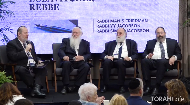 47:14
47:14
Rabbi Menachem Mendel Schneerson (1902–94), the seventh leader of the Lubavitcher movement, is best known as simply “The Rebbe.” This panel offers an intimate view into his writings from scholars entrusted with collecting, translating, and spreading his wisdom. This panel was featured at the 14th annual National Jewish Retreat
Rabbi Manis Friedman (248)
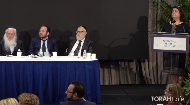 2:24
2:24
If G-d decides the length of each person's life, how will prayer change that? For more "Crossfire" questions, go to: torahcafe.com/crossfire.
Series: Individual Crossfire questions
Rabbi Manis Friedman (248)
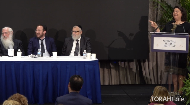 6:10
6:10
What was the most difficult question you have ever been asked? And what was your answer? For more "Crossfire" questions, go to: torahcafe.com/crossfire.
Series: Individual Crossfire questions
Rabbi Manis Friedman (248)
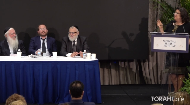 5:55
5:55
What is the biggest misconception that people have? For more "Crossfire" questions, go to: torahcafe.com/crossfire.
Series: Individual Crossfire questions
Rabbi Manis Friedman (248)
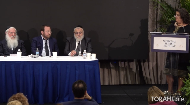 6:09
6:09
How do you resopnd to someone who says "I wasn't born with faith"? For more "Crossfire" questions, go to: torahcafe.com/crossfire.
Series: Individual Crossfire questions
Rabbi Manis Friedman (248)
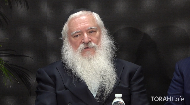 2:53
2:53
As it’s really important to have a personal spiritual mentor, what should one do if they don’t have a person in their community who they feel comfortable opening up to in that capacity? For more "Crossfire" questions, go to: torahcafe.com/crossfire.
Series: Individual Crossfire questions
Rabbi Manis Friedman (248)
 4:34
4:34
Can one love and fear G-d simultaneously? For more "Crossfire" questions, go to: torahcafe.com/crossfire.
Series: Individual Crossfire questions
Rabbi Manis Friedman (248)
 2:09
2:09
Is marriage really for everyone? And what about raising children? For more "Crossfire" questions, go to: torahcafe.com/crossfire.
Series: Individual Crossfire questions
Rabbi Manis Friedman (248)
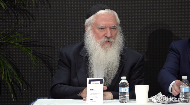 2:12
2:12
In the book of Tanya it's written that one who commits even one sin is considered a "Rash" (wicked one). Isn't that too harsh? For more "Crossfire" questions, go to: torahcafe.com/crossfire.
Series: Individual Crossfire questions
Rabbi Manis Friedman (248)
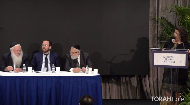 1:09
1:09
Many good and pious Jews don't learn Chassidut. What's wrong with that? For more "Crossfire" questions, go to: torahcafe.com/crossfire.
Series: Individual Crossfire questions
Rabbi Manis Friedman (248)
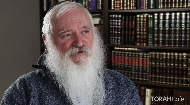 2:19
2:19
Rabbi Manis Friedman (248)
 1:22
1:22
Rabbi Manis Friedman (248)
 3:07
3:07
Rabbi Manis Friedman (248)
 2:40
2:40
Click here for the full context of Rabbi Friedman's reference to the prisoner after 23 years.
Rabbi Manis Friedman (248)
 2:32
2:32
Rabbi Manis Friedman (248)
 7:32
7:32
What is the correct definition of "equality", and when does it conflict with morality?.
Rabbi Manis Friedman (248)
 8:06
8:06
Rabbi Manis Friedman (248)
 13:16
13:16
What is the definition of a human being? What is the difference between living and merely existing? And what should a person's primary focus in life be? Learn about a fascinating course by Rabbi Friedman that changed the lives of many inmates by infusing meaning into their existence and giving them a whole new reason to live.
Rabbi Manis Friedman (248)
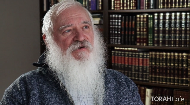 1:12
1:12
Rabbi Manis Friedman (248)
 0:20
0:20
Rabbi Manis Friedman (248)
 3:32
3:32
Rabbi Manis Friedman (248)
 2:55
2:55
Rabbi Manis Friedman (248)
 3:20
3:20
Rabbi Manis Friedman (248)
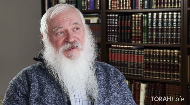 2:11
2:11
Rabbi Manis Friedman (248)
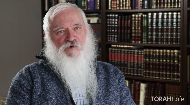 5:43
5:43
Rabbi Manis Friedman (248)
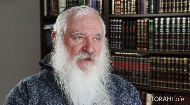 2:41
2:41
Rabbi Manis Friedman (248)
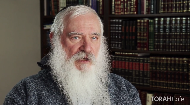 3:38
3:38
Rabbi Manis Friedman (248)
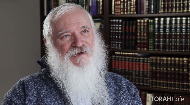 3:09
3:09
Rabbi Manis Friedman (248)
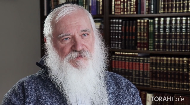 1:48
1:48
Rabbi Manis Friedman (248)
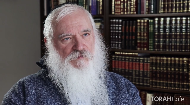 1:33
1:33
Rabbi Manis Friedman (248)
 1:49
1:49
Rabbi Manis Friedman (248)
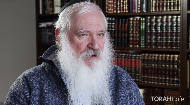 1:09
1:09
Rabbi Manis Friedman (248)
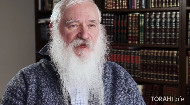 1:00
1:00
Rabbi Manis Friedman (248)
 2:33
2:33
Rabbi Manis Friedman (248)
 1:44
1:44
Rabbi Manis Friedman (248)
 1:26
1:26
Rabbi Manis Friedman (248)
 0:56
0:56
Rabbi Manis Friedman (248)
 42:01
42:01
On Shabbat, we transcend our mundane lives and reconnect with our Maker. Learn how to tap into the uniquely spiritual side of this day, even while eating Cholent. This lecture was delivered at the 13th annual National Jewish Retreat. For more information and to register for the next retreat, visit: Jretreat.com.
Rabbi Manis Friedman (248)
 54:33
54:33
Join two Chassidic masters for a debate of great value. Judaism is full of do's and don'ts but what is more important? Does G-d want the action or the inaction of our daily lives more? This session was featured at the 13th annual National Jewish Retreat. For more information and to register for the next retreat, visit: Jretreat.com.
Rabbi Manis Friedman (248)
 1:03:06
1:03:06
The Rebbe transformed the face of a generation. He ignited the world with passion and love. Discover the revolutionary ideas of the Rebbe’s work. This lecture was delivered at the 13th annual National Jewish Retreat. For more information and to register for the next retreat, visit: Jretreat.com.
Rabbi Manis Friedman (248)
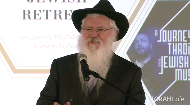 15:44
15:44
Rabbi Manis Friedman delivers the farewell address at the conclusion of the 12th Annual National Jewish Retreat. For more information and to register for the next retreat, visit: Jretreat.com.
Rabbi Manis Friedman (248)
 36:56
36:56
Sure, God has a plan. But why does it always seem to involve suffering, especially for righteous people who have done no wrong? Is divine justice right, even if it feels wrong? This lecture took place at the 12th annual National Jewish Retreat. For more information and to register for the next retreat, visit: Jretreat.com.
Rabbi Manis Friedman (248)
 49:07
49:07
G-d promised to lead the Jewish People out of exile, but are we a people yet? And if He leads, will we follow? Discover how we can stand tall and accept the offer. This lecture took place at the 12th annual National Jewish Retreat. For more information and to register for the next retreat, visit: Jretreat.com.
Rabbi Manis Friedman (248)
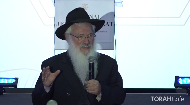 1:06:02
1:06:02
The land and the people of Israel are chosen: chosen to be a light unto the nations, an inspiration, and a guide. How can we best fulfill our mission? This lecture took place at the 12th annual National Jewish Retreat. For more information and to register for the next retreat, visit: Jretreat.com.
Rabbi Manis Friedman (248)
 48:41
48:41
Getting another chance to see all of our loved ones alive again sounds like a foolish fantasy, but it’s right there among the Thirteen Principles of our Faith: G-d promises to revive the dead when Mashiach comes; believing in that truth is imperative to Judaism. Discover all the facts regarding this intriguing aspect of the messianic era
Rabbi Manis Friedman (248)
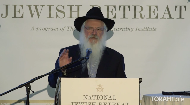 1:07:52
1:07:52
As a divine writ, the Torah contains more than just surface meaning. Like layers of an onion, an infinitely more so, the bed of the Torah sea is forever deepening. Take this chance to delve into each letter, word, and phrase, deciphering the hidden messages between the lines. This lecture took place at the 12th annual National Jewish Retreat
Rabbi Manis Friedman (248)
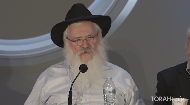 2:26
2:26
For more "Crossfire" questions, go to: torahcafe.com/crossfire.
Series: Individual Crossfire questions
Rabbi Manis Friedman (248)
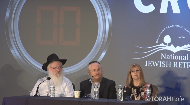 4:31
4:31
For more "Crossfire" questions, go to: torahcafe.com/crossfire.
Series: Individual Crossfire questions
Dr. Amy Austin (12)
 2:11
2:11
For more "Crossfire" questions, go to: torahcafe.com/crossfire.
Series: Individual Crossfire questions
Dr. Amy Austin (12)
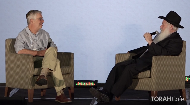 44:28
44:28
This conversation took place at the 12th annual National Jewish Retreat. For more information and to register for the next retreat, visit: Jretreat.com.
Mr. Gary Wexler (2)
 4:24
4:24
For more "Crossfire" questions, go to: torahcafe.com/crossfire.
Series: Individual Crossfire questions
Dr. Amy Austin (12)
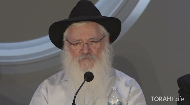 2:08
2:08
For more "Crossfire" questions, go to: torahcafe.com/crossfire.
Series: Individual Crossfire questions
Rabbi Manis Friedman (248)
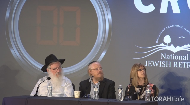 2:30
2:30
For more "Crossfire" questions, go to: torahcafe.com/crossfire.
Series: Individual Crossfire questions
Dr. Amy Austin (12)
 2:53
2:53
For more "Crossfire" questions, go to: torahcafe.com/crossfire.
Series: Individual Crossfire questions
Dr. Amy Austin (12)
 3:23
3:23
For more "Crossfire" questions, go to: torahcafe.com/crossfire.
Series: Individual Crossfire questions
Dr. Amy Austin (12)
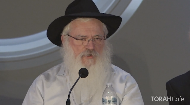 1:36
1:36
For more "Crossfire" questions, go to: torahcafe.com/crossfire.
Series: Individual Crossfire questions
Rabbi Manis Friedman (248)
 1:47
1:47
For more "Crossfire" questions, go to: torahcafe.com/crossfire.
Series: Individual Crossfire questions
Rabbi Manis Friedman (248)
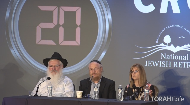 1:37
1:37
For more "Crossfire" questions, go to: torahcafe.com/crossfire.
Series: Individual Crossfire questions
Rabbi Manis Friedman (248)
 2:58
2:58
For more "Crossfire" questions, go to: torahcafe.com/crossfire.
Series: Individual Crossfire questions
Dr. Amy Austin (12)
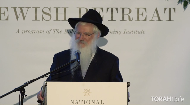 47:59
47:59
Being a part of the chosen nation must have its perks, right? Well, so far, it seems like the grand total of those fringe benefits have been a genocide every generation or two. So what is it that G-d wants from me? Why was I born into this faith? What does it really mean to be a part of the “Chosen Nation?” This lecture took place at the 12th annual National Jewish Retreat
Rabbi Manis Friedman (248)
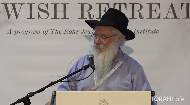 53:14
53:14
It all began with His vision and His command. Science and evolution can trace back only so far, but the Torah reaches much further—deep into the core of Creation. This lecture took place at the 12th annual National Jewish Retreat. For more information and to register for the next retreat, visit: Jretreat.com.
Rabbi Manis Friedman (248)
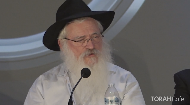 1:53
1:53
For more "Crossfire" questions, go to: torahcafe.com/crossfire.
Series: Individual Crossfire questions
Rabbi Manis Friedman (248)
 2:38
2:38
For more "Crossfire" questions, go to: torahcafe.com/crossfire.
Series: Individual Crossfire questions
Rabbi Manis Friedman (248)
 1:40
1:40
For more "Crossfire" questions, go to: torahcafe.com/crossfire.
Series: Individual Crossfire questions
Rabbi Manis Friedman (248)
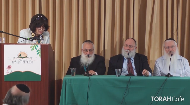 2:15
2:15
For more "Crossfire" questions, go to: torahcafe.com/crossfire.
Series: Individual Crossfire questions
Rabbi Manis Friedman (248)
 3:28
3:28
For more "Crossfire" questions, go to: torahcafe.com/crossfire.
Series: Individual Crossfire questions
Rabbi Manis Friedman (248)
 4:26
4:26
For more "Crossfire" questions, go to: torahcafe.com/crossfire.
Series: Individual Crossfire questions
Rabbi Manis Friedman (248)
 2:43
2:43
For more "Crossfire" questions, go to: torahcafe.com/crossfire.
Series: Individual Crossfire questions
Rabbi Manis Friedman (248)
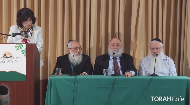 1:30
1:30
For more "Crossfire" questions, go to: torahcafe.com/crossfire.
Series: Individual Crossfire questions
Rabbi Manis Friedman (248)
 1:03
1:03
For more "Crossfire" questions, go to: torahcafe.com/crossfire.
Series: Individual Crossfire questions
Rabbi Manis Friedman (248)
 1:45
1:45
For more "Crossfire" questions, go to: torahcafe.com/crossfire.
Series: Individual Crossfire questions
Rabbi Manis Friedman (248)
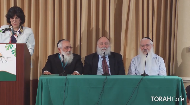 1:53
1:53
For more "Crossfire" questions, go to: torahcafe.com/crossfire.
Series: Individual Crossfire questions
Rabbi Manis Friedman (248)
 3:28
3:28
For more "Crossfire" questions, go to: torahcafe.com/crossfire.
Series: Individual Crossfire questions
Rabbi Manis Friedman (248)
 2:20
2:20
For more "Crossfire" questions, go to: torahcafe.com/crossfire.
Series: Individual Crossfire questions
Rabbi Manis Friedman (248)
 0:45
0:45
For more "Crossfire" questions, go to: torahcafe.com/crossfire.
Series: Individual Crossfire questions
Rabbi Manis Friedman (248)
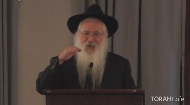 58:46
58:46
Throughout history so much violence and bloodshed has been perpetrated in the name of religion. From forced conversions to killing those considered infidels, it is vital that we examine the role of religion in today s society and understand how something that should create more moral and peaceful people has, unfortunately, all too often led to the exact opposite
Rabbi Manis Friedman (248)
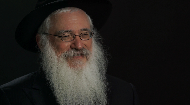 5:39
5:39
Listen to Rabbi Manis Friedman explain: Favoritism, Jealousy and Chosenness.
Series: The Jewish Course of Why
Rabbi Manis Friedman (248)
 8:43
8:43
Rabbi Friedman discusses the two types of Mitzvot. The Mitzvot which are time oriented and the Mitzvot which are Space oriented….
Series: The Jewish Course of Why
Rabbi Manis Friedman (248)
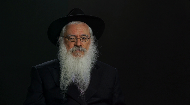 8:13
8:13
Rabbi Manis Friedman discusses the question of homosexuality in the context of religion by explaining that we all have freedom of choice. The gift of being able to choose can cause angst under certain circumstances. Knowing what G-d does and does not want, and actually following through with G-d’s wishes, present challenges every single day
Series: The Jewish Course of Why
Rabbi Manis Friedman (248)
 1:04:21
1:04:21
A peek at the headlines invariably leads to that hardest of questions: If G-d is just, why do bad things happen to good people? Surprising insights, perspectives, and paradigm changers. This lecture took place at the 10th annual National Jewish Retreat. For more information and to register for the next retreat, visit: Jretreat.com.
Rabbi Manis Friedman (248)
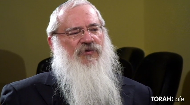 3:59
3:59
Rabbi Manis Friedman (248)
 53:42
53:42
No amount of pleasure can make a person happy. But true happiness disposes a person towards greater pleasure. Learn what happiness really means, because understanding it is the first step to gaining it. This lecture took place at the 10th annual National Jewish Retreat. For more information and to register for the next retreat, visit: Jretreat.com.
Rabbi Manis Friedman (248)
 20:28
20:28
Rabbi Manis Friedman (248)
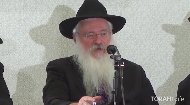 31:28
31:28
Rabbi Manis Friedman (248)
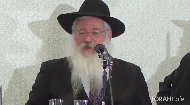 24:24
24:24
Rabbi Manis Friedman (248)
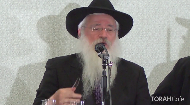 0:00
0:00
Rabbi Manis Friedman (248)
 3:02
3:02
Rabbi Manis Friedman (248)
 5:28
5:28
Series: Paradigm Shift
Rabbi Manis Friedman (248)
 4:46
4:46
Series: Paradigm Shift
Rabbi Manis Friedman (248)
 5:30
5:30
Series: Paradigm Shift
Rabbi Manis Friedman (248)
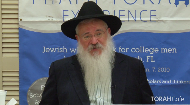 42:44
42:44
Rabbi Manis Friedman (248)
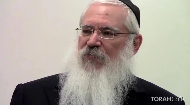 5:18
5:18
Rabbi Manis Friedman (248)
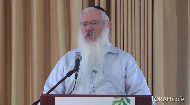 1:03:05
1:03:05
What is the afterlife? Rabbi Friedman’s sensitive and meaningful approach illuminates the Jewish concept of the hereafter. This discussion includes practical applications of the core concepts of the soul and the afterlife on the here and now. This enjoyable talk is riddled with anecdotes including a fascinating story about Sara Ferguson, the Duchess of York
Rabbi Manis Friedman (248)
 2:55
2:55
In the Passover Haggadah we have an example of a Jewish rebel- a Jew who wants to exclude himself from the Jewish Nation and not be part of "the people". How do we respond to such a person? Rabbi Manis Friedman has the answer in this short, insightful clip into a character of the Passover Haggadah.
Rabbi Manis Friedman (248)
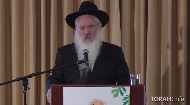 59:54
59:54
With today’s culture saturated with pride movements of every stripe, is there room for Jewish pride? And if we do celebrate our Jewishness, what exactly are we celebrating? As we move further into the 21st century, the vexing question of Jewish identity must be answered with a philosophy that allows us to shed our insecurity and be proud of our people
Rabbi Manis Friedman (248)
 17:13
17:13
This address was delivered at the 8th annual National Jewish Retreat. For more information and to register for the next retreat, visit: Jretreat.com.
Rabbi Manis Friedman (248)
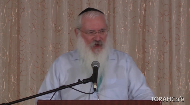 1:00:20
1:00:20
The news headlines don’t lie. Is religion magnificent or murderous? Is it really living up to our lofty expectations? With the history of religion stained with so much blood, we need to re-examine its role in today’s society. This frank assessment of religion and its practitioners will place faith and belief in its true context.
Rabbi Manis Friedman (248)
 55:53
55:53
The popular "Crossfire!" is back with an all-new panel! Have you ever wished to have a "no-holds-barred" discussion with a Rabbi and get answers to all of your burning questions? This is your chance! This Crossfire session at the National Jewish Retreat featured a panel including Rabbi Yosef Schusterman, spiritual leader of Chabad of N
Series: Crossfire!
Rabbi Manis Friedman (248)
 9:13
9:13
Rabbi Manis Friedman (248)
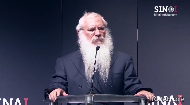 16:13
16:13
Rabbi Manis Friedman (248)
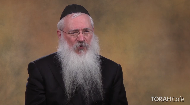 2:53
2:53
What You Should Know Before Getting Married with Rabbi Manis Friedman 1. What is Marriage? 2. Why Get Married? 3. What to Look for in a Spouse? 4. What is a Husband? 5. What is a Wife? 6
Series: What You Should Know Before Getting Married
Rabbi Manis Friedman (248)
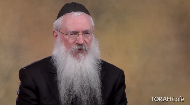 2:07
2:07
What You Should Know Before Getting Married with Rabbi Manis Friedman 1. What is Marriage? 2. Why Get Married? 3. What to Look for in a Spouse? 4. What is a Husband? 5. What is a Wife? 6
Series: What You Should Know Before Getting Married
Rabbi Manis Friedman (248)
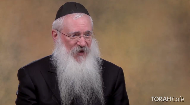 2:38
2:38
What You Should Know Before Getting Married with Rabbi Manis Friedman 1. What is Marriage? 2. Why Get Married? 3. What to Look for in a Spouse? 4. What is a Husband? 5. What is a Wife? 6
Series: What You Should Know Before Getting Married
Rabbi Manis Friedman (248)
 5:24
5:24
Continuing in this series on marriage, Rabbi Manis Friedman discusses whether marriage is a consequence of love or marriage is a commitment to an institution that is greater than the person you marry. Our spouse and/or children don't provide us with love we need, rather we need their love
Series: What You Should Know Before Getting Married
Rabbi Manis Friedman (248)
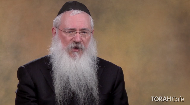 4:19
4:19
What You Should Know Before Getting Married with Rabbi Manis Friedman 1. What is Marriage? 2. Why Get Married? 3. What to Look for in a Spouse? 4. What is a Husband? 5. What is a Wife? 6
Series: What You Should Know Before Getting Married
Rabbi Manis Friedman (248)
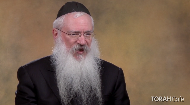 4:51
4:51
What You Should Know Before Getting Married with Rabbi Manis Friedman 1. What is Marriage? 2. Why Get Married? 3. What to Look for in a Spouse? 4. What is a Husband? 5. What is a Wife? 6
Series: What You Should Know Before Getting Married
Rabbi Manis Friedman (248)
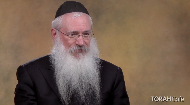 2:56
2:56
What You Should Know Before Getting Married with Rabbi Manis Friedman 1. What is Marriage? 2. Why Get Married? 3. What to Look for in a Spouse? 4. What is a Husband? 5. What is a Wife? 6
Series: What You Should Know Before Getting Married
Rabbi Manis Friedman (248)
 34:54
34:54
Rabbi Manis Friedman (248)
 4:22
4:22
Blossom where you are planted, true love is for the important things. Rabbi Manis Friedman illustrates the concept of true love with the love of a fellow Jew whom we ought to love. What You Should Know Before Getting Married with Rabbi Manis Friedman 1. What is Marriage? 2
Series: What You Should Know Before Getting Married
Rabbi Manis Friedman (248)
 1:31
1:31
Rabbi Manis Friedman (248)
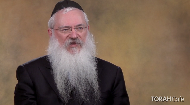 1:41
1:41
What You Should Know Before Getting Married with Rabbi Manis Friedman 1. What is Marriage? 2. Why Get Married? 3. What to Look for in a Spouse? 4. What is a Husband? 5. What is a Wife? 6
Series: What You Should Know Before Getting Married
Rabbi Manis Friedman (248)
 4:43
4:43
What You Should Know Before Getting Married with Rabbi Manis Friedman 1. What is Marriage? 2. Why Get Married? 3. What to Look for in a Spouse? 4. What is a Husband? 5. What is a Wife? 6
Series: What You Should Know Before Getting Married
Rabbi Manis Friedman (248)
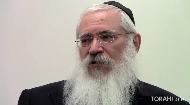 5:09
5:09
Rabbi Manis Friedman (248)
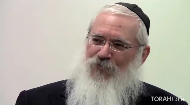 2:32
2:32
Rabbi Manis Friedman (248)
 2:28
2:28
This interview with Rabbi Manis Friedman has been produced Platinum Mentorship, moderated by Yaron Hassid.
Rabbi Manis Friedman (248)
 3:06
3:06
This video has been produced Platinum Mentorship, moderated by Yaron Hassid.
Rabbi Manis Friedman (248)
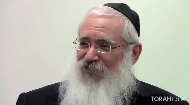 2:36
2:36
Divine providence put you there, and you have what it takes. Rabbi Manis Friedman helps us focus on the goal and to realize that we have what another needs. This video has been produced Platinum Mentorship, moderated by Yaron Hassid.
Rabbi Manis Friedman (248)
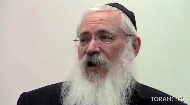 1:37
1:37
Start young. Rabbi Manis Friedman gives the recipe for a happy person in this short but intense video. This video has been produced Platinum Mentorship, moderated by Yaron Hassid.
Rabbi Manis Friedman (248)
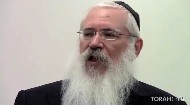 7:28
7:28
Would you rather be loved or needed? The icing or the cake? Rabbi Manis Friedman differentiates between pleasure and joy and which is the end goal. This video has been produced Platinum Mentorship, moderated by Yaron Hassid.
Rabbi Manis Friedman (248)
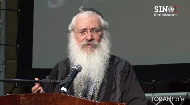 43:44
43:44
What is the answer to the perennial questions: Is there life after death? What and where is Hell? Rabbi Manis Friedman imparts knowledge in an easy to follow manner, explaining the real, Jewish response to the questions concerning the afterlife. Rabbi Friedman clarifies the situation with stories, chassidus and explanations
Rabbi Manis Friedman (248)
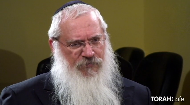 5:21
5:21
Rabbi Manis Friedman presents unique insights into the Passover Haggadah. On Passover we speak a lot about freedom, and breaking free from slavery. But do we really know the definiton of slavery? In this fascinating clip, Rabbi Manis Friedman provides viewers with the definition of slavery as well as tips on how to break free. .
Rabbi Manis Friedman (248)
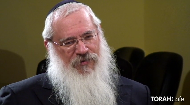 3:15
3:15
Rabbi Manis Friedman (248)
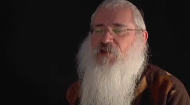 4:39
4:39
Is the relationship between a husband and wife all about procreation? Rabbi Manis Friedman continues his discussion of marriage saying that a husband and wife complete each other. The man represents aggression, an innate desire to extend his existence in the world, and the woman is alluring, with the capacity to encompass another within her.
Rabbi Manis Friedman (248)
 42:45
42:45
Rabbi Manis Friedman (248)
 2:34
2:34
If we are all equal, will we all be moral? Rabbi Manis Friedman looks at equality and morality from a different angle. Inequality is essential to morality. This short video says a lot about our current government and general attitudes.
Rabbi Manis Friedman (248)
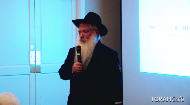 26:51
26:51
Click here to watch Part 1 - The Secret with Josh Assaraf Rabbi Manis Friedman points out the differences and similarities to The Secret. He explains how the world is maintained on Shabbos through the vibrations coming from G-ds thoughts. The Gemorrah speaks of shadows predicting the future, and advises us not to look at them so as not to affect outcomes with negative thoughts
Rabbi Manis Friedman (248)
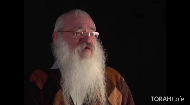 4:55
4:55
Obedience comes from distance; attachment is the result of closeness. Rabbi Manis Friedman differentiates between obeying the command of an authority figure, and experiencing the closeness to G-d that comes when doing a mitzvah. G-d is inviting us to join Him in something He considers precious, which instigates the connection and attachment we feel.
Rabbi Manis Friedman (248)
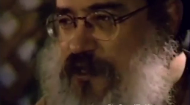 28:30
28:30
What moved G-d to create the world? This is a trick question, if there was a reason that motivated G-d then he is not the primary force. With Rabbi Manis Friedman we learn that G-d created the world only because He desired it. In this world that G-d created, people can do what they want
Rabbi Manis Friedman (248)
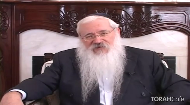 12:34
12:34
Did idol worship go out with the Stone Age? Rabbi Manis Friedman lists examples of 3 modern idols that have replaced the ancient idols of stone and wood. We put our trust in these false gods, thinking they are the solution to everything, sacrifycing our time, money and lives to them. The first idol on his list is Love. Rabbi Friedman describes how to love without falling into idol worship
Rabbi Manis Friedman (248)
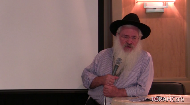 43:05
43:05
A deep thinker and master of chassidc philosophy, Rabbi Manis Friedman, in this session with the Sinai Scholars, answers the questions of young Jews who are discovering Judaisim as adults. Rabbi Manis Friedman plunges into the depth of the Jewish soul, family relations strained by religion, our relationship with G-d, and our role in the world
Rabbi Manis Friedman (248)
 53:32
53:32
Rabbi Manis Friedman (248)
 37:11
37:11
This session took place at the 7th annual National Jewish Retreat. For more information and to register for the next retreat, visit: Jretreat.com.
Rabbi Manis Friedman (248)
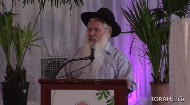 59:53
59:53
In the classic chassidic text, the Tanya, the Alter Rebbe reveals the deepest levels of the soul. He explains that due to the spark of infinity in the soul of every Jew, everyone, regardless of their level of knowledge, is prepared to sacrifice their life for the sanctity of G-d’s Name, and to suffer harsh torture rather than deny G-d’s unity
Rabbi Manis Friedman (248)
 2:18
2:18
Rabbi Manis Friedman (248)
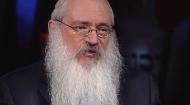 16:45
16:45
Series: Messages - Season 5
Dr. Michael Chighel (59)
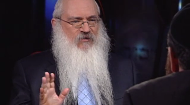 16:56
16:56
“Messages” is a weekly TV show featuring ideas & ideals of the Lubavitcher Rebbe. This episode includes a conversation with Rabbi Manis Friedman.
Series: Messages - Season 5
Dr. Michael Chighel (59)
 5:20
5:20
Rabbi Manis Friedman (248)
 41:33
41:33
Mountain climbers relish the panoramic view at the top of the mountain, but sooner or later, they must make the trek down. After five days at the “top of the mountain” at the National Jewish Retreat, it’s time to begin our descent
Rabbi Manis Friedman (248)
 9:18
9:18
In this segment, Rabbi Manis Friedman shares insight into what he deems the 3 pillars of a Jewish marriage: Generosity, Respect and Consideration. He explains that according to Jewish philosophy, Jewish marriage is a divine construction and therefore has the ability to achieve results of G-dly proportion. .
Rabbi Manis Friedman (248)
 1:42
1:42
Our society tells us, “It’s all about YOU.” We are constantly inundated with the message that our first priority should be getting, not giving. In this segment, Rabbi Manis Friedman offers a novel look at the idea of freedom - one in which our truest freedom lies not in what we can choose to take for ourselves, but what we choose to give to others. .
Rabbi Manis Friedman (248)
 5:25
5:25
The Exodus from Egypt took place over 3000 years ago- why are we still celebrating that freedom today? Rabbi Manis Friedman has the answer.
Rabbi Manis Friedman (248)
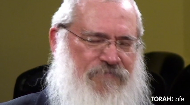 24:11
24:11
The TorahCafé crew hit the streets in preparation for this Passover, to hear what people from all walks of life had to say about the upcoming holiday
Mrs. Baila Olidort (4)
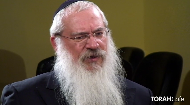 4:26
4:26
Rabbi Manis Friedman (248)
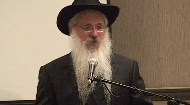 21:51
21:51
Men and women: two halves of one whole, or strangers from another planet? Some say that G-d’s biggest joke was having men and women marry each other. In this humorous but practical talk, Rabbi Friedman provides down-to-earth tips for happiness in marriage.
Rabbi Manis Friedman (248)
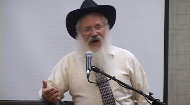 1:04:45
1:04:45
As the saying goes, it’s easy to love someone; it’s liking him or her that’s hard. Learn how to make the relationships that matter the most, more meaningful. In this talk we will examine the nature of relationships, their G-dly dimensions, and the secrets of getting along with the people you can’t get along without
Rabbi Manis Friedman (248)
 1:17:43
1:17:43
Relationships run into trouble when a man and a woman get married with no intention of becoming a husband and a wife. Join Rabbi Manis Friedman to learn how celebrating gender differences can be key to a truly successful marriage.
Rabbi Manis Friedman (248)
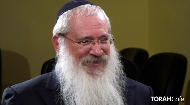 4:14
4:14
Rabbi Manis Friedman (248)
 1:21
1:21
Rabbi Manis Friedman (248)
 1:16:37
1:16:37
When man was created, he was created from pure Nothingness. When woman was created, she was created from something that already existed. Join Rabbi Manis Friedman for an exploration of how the differing spiritual origins of man and woman effect the day to day dynamics of relationships.
Rabbi Manis Friedman (248)
 1:05:51
1:05:51
It's Never Too Late: From good to better, how to transform the past. This class was filmed at the Bais Chana in Jewish Women's Study Retreat, in Berkshires, CT . .
Rabbi Manis Friedman (248)
 50:15
50:15
Rabbi Manis Friedman (248)
 17:46
17:46
Rabbi Manis Friedman (248)
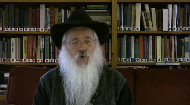 1:04:32
1:04:32
Rabbi Manis Friedman discusses Tanya: Chapter 41.
Rabbi Manis Friedman (248)
 28:45
28:45
This video has been produced by: Kehot Publication Society and Lubavitch.com.
Rabbi Manis Friedman (248)
 32:48
32:48
In an age when retail stores are open seven days a week and people are expected to be reachable all the time, a spate of editorials have broached the concept of declaring a “secular Sabbath” — a day devoid of e-mail, cell phones and the other invasions of modern society. But Shabbat has always been much more than a protection against burnout
Rabbi Manis Friedman (248)
 35:40
35:40
Rabbi Manis Friedman (248)
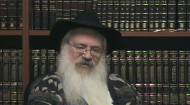 1:01:03
1:01:03
This class was given in response to the terrorist attack that struck the Chabad House in Mumbai, India. It's poignent message is directed to those who grapple for comfort and understanding in the face of inexplicable tragedy.
Rabbi Manis Friedman (248)
 24:01
24:01
So Moshiach comes... then what? Listen in on a conversation between Rabbi Manis Friedman and Dr. Michael Kigel and have your mind blown by a whole new understanding of the Messianic Era. This video has been produced by Kosher Tube.
Dr. Michael Chighel (59)
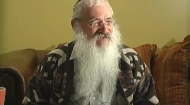 7:13
7:13
This video is part of a Question & Answer session given by Rabbi Manis Friedman to girls and women in Crown Heights, NY hosted by Bais Chana Women International (www.baischana.org). Rabbi Friedman is a world-renowned author, counselor, lecturer and philosopher. For books, classes and insight by Rabbi Friedman, check out: www.ItsGoodToKnow.com.
Rabbi Manis Friedman (248)
 6:04
6:04
Place your parents on a pedestal and if they fall off, put them back up. Rabbi Manis Friedman defines the relationship between a child and parent as one of entitlement. A child can never repay his parents and they are entitled to respect and honor despite their skills or success at parenting.
Rabbi Manis Friedman (248)
 5:43
5:43
Rabbi Manis Friedman is the dean of Bais Chana Women International, an organization which offers a wide variety of learning programs for women and girls of all ages. For more information about Bais Chana and to sign up for their retreats, check out www.baischana.org.
Rabbi Manis Friedman (248)
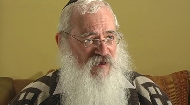 30:49
30:49
Rabbi Manis Friedman (248)
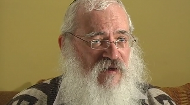 5:39
5:39
Rabbi Manis Friedman (248)
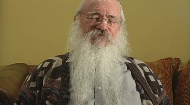 10:42
10:42
Rabbi Manis Friedman (248)
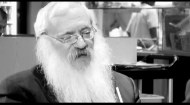 24:44
24:44
Belief in an "executive world spiritual leader" - messiah, or moshiach - is a central tenant of Judaism. What will Moshiach be like? What will he actually do in the world? Is the Messianic Age something to be afraid of, or something to truly rally for every single day? This video has been produced by Kosher Tube.
Dr. Michael Chighel (59)
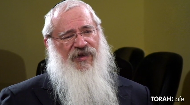 0:57
0:57
Rabbi Manis Friedman (248)
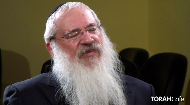 7:30
7:30
Rabbi Manis Friedman (248)
 23:10
23:10
“Messages” is a weekly TV show featuring ideas & ideals of the Lubavitcher Rebbe. This episode includes a short segment of the Rebbe speaking, followed by a discussion and commentary by Rabbi Manis Friedman. This episode concludes with a five-minute segment of “The Deed” entitled Investment 1.
Series: Messages - Season 4
Dr. Michael Chighel (59)
 23:28
23:28
“Messages” is a weekly TV show featuring ideas & ideals of the Lubavitcher Rebbe. This episode includes a short segment of the Rebbe speaking, followed by a discussion and commentary by Rabbi Manis Friedman. This episode concludes with a five-minute segment of “The Deed” entitled Lightward 2.
Series: Messages - Season 4
Dr. Michael Chighel (59)
 23:42
23:42
“Messages” is a weekly TV show featuring ideas & ideals of the Lubavitcher Rebbe. This episode includes a short segment of the Rebbe speaking, followed by a discussion and commentary by Rabbi Manis Friedman. This episode concludes with a five-minute segment of “The Deed” entitled Invisible.
Series: Messages - Season 4
Dr. Michael Chighel (59)
 23:42
23:42
“Messages” is a weekly TV show featuring ideas & ideals of the Lubavitcher Rebbe. This episode includes a short segment of the Rebbe speaking, followed by a discussion and commentary by Rabbi Manis Friedman. This episode concludes with a five-minute segment of “The Deed” entitled Ethics.
Series: Messages - Season 4
Dr. Michael Chighel (59)
 23:42
23:42
“Messages” is a weekly TV show featuring ideas & ideals of the Lubavitcher Rebbe. This episode includes a short segment of the Rebbe speaking, followed by a discussion and commentary by Rabbi Manis Friedman. This episode concludes with a five-minute segment of “The Deed” entitled Ubiquitous.
Series: Messages - Season 4
Dr. Michael Chighel (59)
 23:50
23:50
“Messages” is a weekly TV show featuring ideas & ideals of the Lubavitcher Rebbe. This episode includes a short segment of the Rebbe speaking, followed by a discussion and commentary by Rabbi Manis Friedman. This episode concludes with a five-minute segment of “The Deed” entitled Holy Lego.
Series: Messages - Season 4
Dr. Michael Chighel (59)
 23:44
23:44
“Messages” is a weekly TV show featuring ideas & ideals of the Lubavitcher Rebbe. This episode includes a short segment of the Rebbe speaking, followed by a discussion and commentary by Rabbi Manis Friedman. This episode concludes with a five-minute segment of “The Deed” entitled Theopolis.
Series: Messages - Season 4
Dr. Michael Chighel (59)
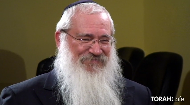 7:12
7:12
Rabbi Manis Friedman (248)
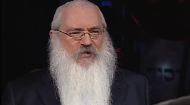 17:12
17:12
Series: Messages - Season 5
Dr. Michael Chighel (59)
 16:10
16:10
We love our siblings, our parents and our children because of our connection to them, but that closeness might make us uncomfortable. Rabbi Manis Friedman and Rabbi Michael Kigel discuss love as it applies to different relationships. Love of a fellow Jew is based on the common soul and the common father that binds us.
Series: Messages - Season 5
Dr. Michael Chighel (59)
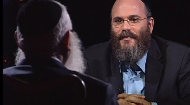 17:05
17:05
Series: Messages - Season 5
Dr. Michael Chighel (59)
 15:59
15:59
Series: Messages - Season 5
Dr. Michael Chighel (59)
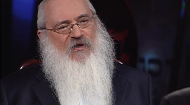 17:44
17:44
Series: Messages - Season 5
Dr. Michael Chighel (59)
 17:54
17:54
Kodesh, usually translated as holy, is taken here as transparency. Rabbi Manis Friedman and Dr. Michael Kigel discuss what is revealed in the transparency of kodesh. A prime example in our times is the transparency in the air of the Holy Land, where you cannot ignore G-d.
Series: Messages - Season 5
Dr. Michael Chighel (59)
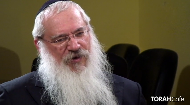 4:03
4:03
Rabbi Manis Friedman (248)
 1:16
1:16
Rabbi Manis Friedman (248)
 1:43
1:43
Rabbi Manis Friedman (248)